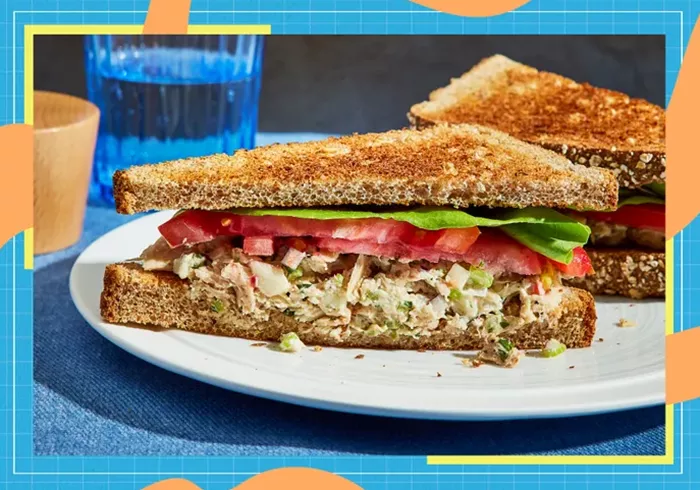Many people grew up enjoying mayonnaise-based salads such as tuna, chicken, or ham salad, often served on white bread or crackers. These meals were simple and comforting, reflecting a time when nutrition mattered, but less so than it does today. People consumed chips, candy, and mayonnaise-rich dishes in moderation and led more active lifestyles that included spontaneous outdoor activity rather than extended screen time. As times have changed, so have our habits and understanding of health. With improved knowledge about nutrition, individuals are now able to make more informed choices. One such change is replacing mayonnaise with Greek yogurt in protein-based salads.
Greek yogurt offers several nutritional advantages. It is a rich source of protein, which helps support daily energy needs and muscle maintenance. It also contains probiotics, which aid digestion and promote gut health. Fortified varieties of Greek yogurt provide vitamin D, essential for bone strength and immune function. Since it is made from cow’s milk, Greek yogurt is also a good source of calcium—a nutrient many people lack in their daily diets. This simple substitution can help address that deficiency without drastically changing familiar meals. In addition to nutrition, Greek yogurt also enhances the flavor and texture of dishes. Its tangy taste works well in savory recipes, while its creamy consistency mirrors that of mayonnaise, allowing for a smooth transition in recipes like salads, dressings, and marinades.
When making the switch, it’s important to consider the role mayonnaise plays in the original recipe. If the dish already includes acidic ingredients like citrus juice or vinegar, Greek yogurt’s natural tartness may be too strong, and a half-and-half mix may work better. For recipes using only a small amount of mayonnaise, a full substitution with Greek yogurt is often effective. This change can be applied not only to tuna salad but also to chicken salad, egg salad, and other similar dishes.
Protein continues to be a major topic in nutrition conversations. It plays a vital role in many biological functions, including enzyme and hormone production, immune response, and cellular structure. Public interest in protein is growing, driven by fitness trends and weight management goals, but not everyone needs as much as the headlines suggest. According to the 2020–2025 Dietary Guidelines for Americans, healthy adults should aim to get 10% to 35% of their daily calories from protein. A simple recommendation is to consume about 0.8 grams of protein per kilogram of body weight per day. For example, that equals about 54 grams for a 150-pound woman or 65 grams for a 180-pound man. These needs can increase based on factors such as age and physical activity.
Replacing mayonnaise with Greek yogurt is a small but effective way to increase protein intake and improve the nutritional quality of everyday meals. It adds more than just protein—also delivering beneficial probiotics, calcium, and vitamin D if fortified. This simple change makes it easier for people to enjoy their favorite meals while supporting better health.
Related Topics:
Vitafusion Partners with Viral Chef Brad Leone to Launch New Vitamins
Ripon Riverside Pub Scores 5-Star Food Hygiene Rating
Hunter McIntyre’s Nutrition: How the HYROX Champ Controls Cravings


